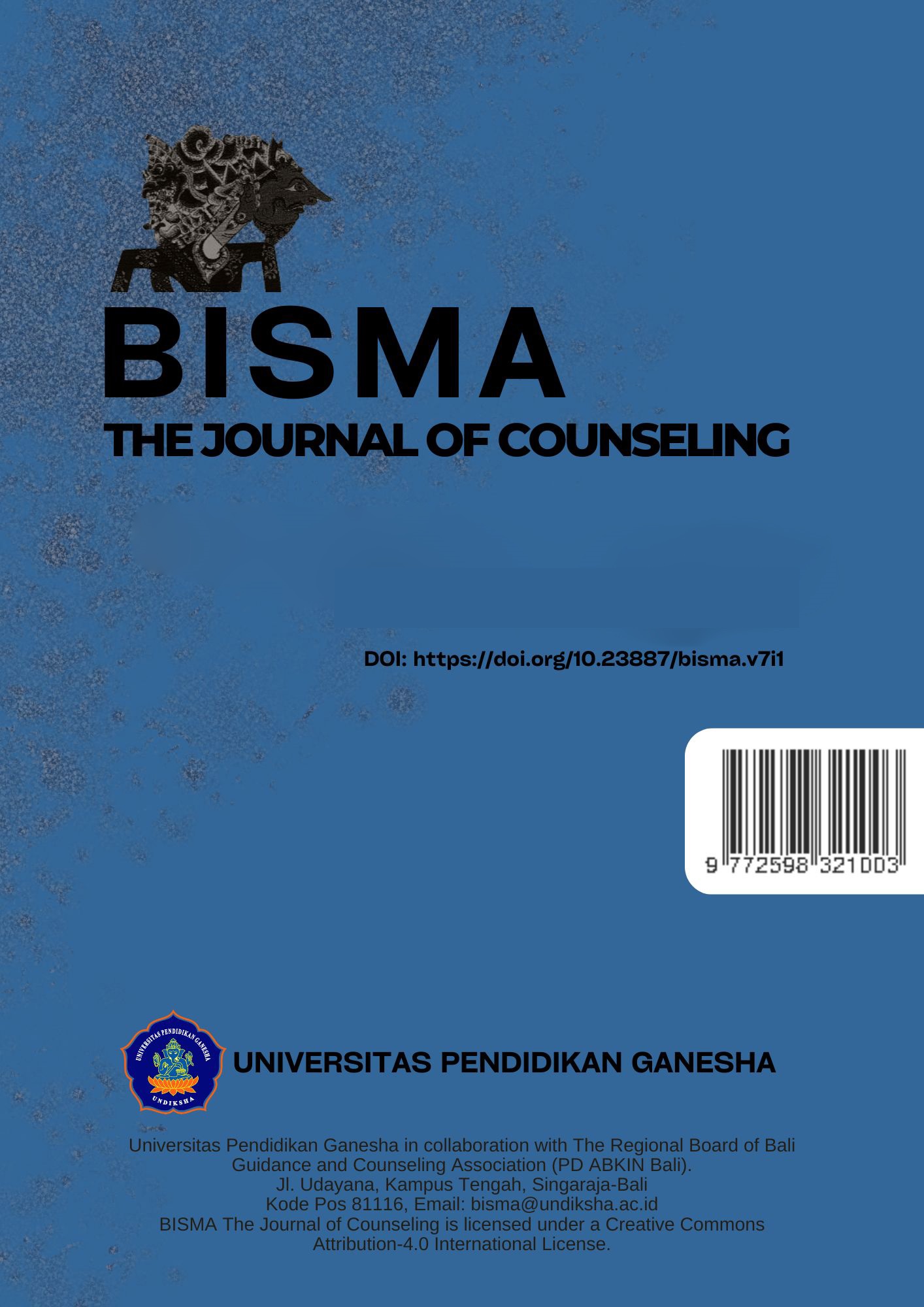The Effectiveness of Group Counseling in Modifying Inmates' Attitudes Toward Drugs
DOI:
https://doi.org/10.23887/bisma.v8i3.90275Keywords:
Attitude, Group Guidance, DrugsAbstract
The prevalence of drug abuse in Indonesia is increasing, particularly among women, raising concerns about its negative impact on health and social behavior. One significant factor influencing drug abuse is an individual's attitude toward drugs. A permissive or positive attitude toward drugs can heighten the risk of substance use. This study aims to examine the effectiveness of group counseling services in altering inmates' attitudes toward drugs. A quantitative approach was employed, utilizing a quasi-experimental method and a time-series design. The study involved nine inmates and one former drug-related inmate who participated in the group counseling sessions. Data were collected using an Attitude Toward Drugs Inventory developed based on the Likert scale. Data analysis techniques included the N-gain test to measure attitude improvement and the Wilcoxon test to assess the significance of differences before and after the intervention. The results indicated that group counseling services were moderately effective in changing inmates' attitudes toward drugs, with a Z-value of -2.810 and an Asymp. Sig. (2-tailed) value of 0.005, confirming the acceptance of the alternative hypothesis (Ha). Therefore, it can be concluded that group counseling services are an effective strategy for reducing inmates' permissive attitudes toward drugs, ultimately contributing to rehabilitation and drug prevention programs within correctional facilities.
Published
Issue
Section
License
Copyright (c) 2024 Athalia A. Aptanta Tumanggor, Herman Nirwana

This work is licensed under a Creative Commons Attribution 4.0 International License.








